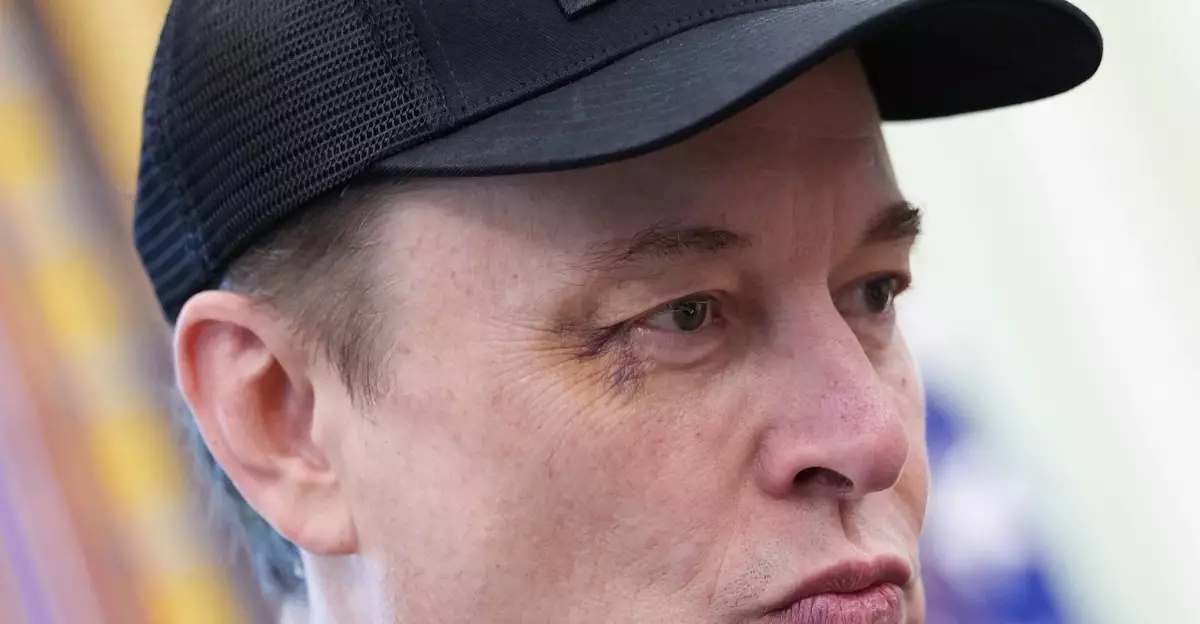In a surprising turn of events, Elon Musk has concluded his five-month tenure leading the Department of Government Efficiency (DOGE), but his legacy appears intertwined with both triumphs and tribulations. Famous for his ambitious ventures within the tech industry, Musk’s foray into public service has brought significant attention, raising questions about the overall success of such a high-profile appointment. Even as he walks away from the position, he maintains an optimistic outlook, asserting that DOGE will thrive despite concerns about its effectiveness and the infamy that has shaped his recent experiences.
Musk returned to the public eye alongside former President Donald Trump during a press conference, where he sported a black eye, a testament to a rather humorous incident with his young son. His anecdote about an innocent yet physical exchange revealed the more personal side of the tech billionaire—a stark contrast to the often-criticized public persona he projects. Yet beneath this light-hearted nature lies the weight of multiple pressing issues that have arisen during his leadership, raising doubts about the soundness of his methodologies.
Market Struggles and a Shifting Reputation
While Musk remains a prominent figure in the world of technology, his companies, particularly Tesla, are facing significant challenges. Reports indicate that Tesla is losing market share in key global territories and has recently experienced a decline in quarterly sales—a disconcerting statistic that has not been observed in nearly five years. Simultaneously, public sentiment towards Musk seems to be shifting negatively. A majority of Americans reportedly express disdain for the billionaire, arguably compromising his influence and appeal.
Meanwhile, Musk’s claims surrounding the $1 trillion in funding cuts purportedly achieved through the efforts of DOGE have come under scrutiny. The assertion, though grandiose, needs to be weighed against critical assessments which argue the actual savings might be substantially lower. For every heroic narrative Musk spins, there is a counter-narrative of unintended consequences; one researcher even linked the elimination of humanitarian aid funding to tragic global outcomes, primarily affecting vulnerable populations. These disconcerting revelations have led experts to query whether Musk’s ambition to streamline government operations has inadvertently exacerbated systemic issues.
DOGE’s Future: Rhetoric vs. Reality
Musk’s comments regarding DOGE, which he likens to a “way of life” akin to Buddhism, illustrate his deep-seated belief in the potential of his initiatives. He expressed hope that the organization would continue to evolve and maintain its momentum despite his departure. The notion that DOGE could transform into a self-sustaining entity suggests Musk’s confidence in its underlying principles, even as critics question its tangible accomplishments.
While Musk referenced a limited term as a special government employee, it seems unlikely that this will diminish the fervor surrounding his controversial leadership style. The reality, however, is more complex. The advisory ramifications of DOGE’s operational methods, including widespread firings and re-hirings alongside misuse of paid administrative leave, may have inadvertently inflated the costs of a supposed cost-cutting initiative. The Partnership for Public Service has suggested that these actions could have burdened the government substantially beyond initial projections.
Political Theater: A Showcase in the Oval Office
The backdrop of a press conference in the Oval Office, flanked by Trump, only amplifies the theatricality of Musk’s public engagement. The ceremony featured Trump’s exuberant gratitude, showcasing Musk with a symbolic golden key representing the White House’s appreciation of his contributions. Here, the undercurrents of political theater unveil a notable aspect of Duc’s leadership: the merging of technology, politics, and performance art, all of which Musk seems to navigate with bravado.
The messages conveyed during such public appearances are essential in shaping public perception. Trump’s praise—while likely sincere—could also reflect an acute awareness of Musk’s duality as an entrepreneur and public figure: immensely talented yet equally polarizing. Observers are left to ponder whether Musk’s charisma and relentless drive for innovation can overcome the burgeoning skepticism surrounding both his projects and his persona.
In embracing both the challenge and promise embedded within the DOGE initiative, Musk has positioned himself at a unique intersection of innovation and tradition. The path ahead is riddled with obstacles, yet Musk’s assertions affirm his unwavering belief that DOGE will not only endure but potentially flourish, regardless of the controversies that have dotted his tenure. The story of Elon Musk, particularly in relation to his government service, embodies a compelling mix of transformative aspirations and the gritty realities of navigating the complexities of systemic change.

